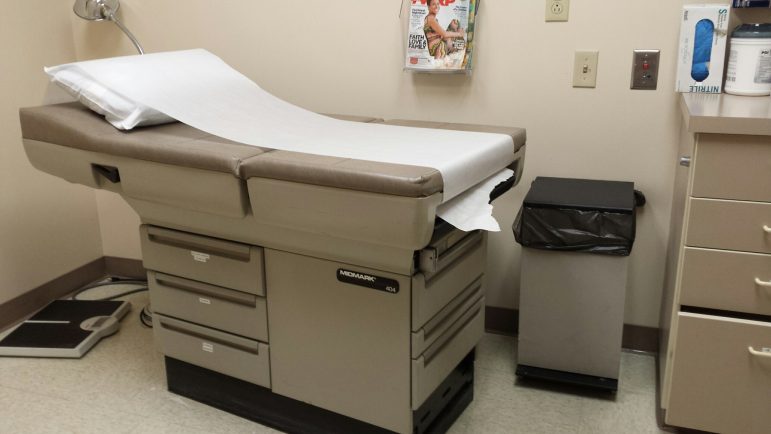Each year, an estimated 2 million children are exploited in the global sex trade, according to Equality Now, an advocacy group. And as Alabama has become part of an elaborate interstate sex-trafficking network, countless underaged victims need treatment. That’s where the Children’s Hospital Intervention and Prevention or CHIPS Center in Birmingham comes in. Specialists there perform forensic medical exams and offer counseling to suspected victims of child abuse. In this final part of our look at sex trafficking, Dr. Melissa Peters, the center’s medical director, talks with WBHM’s Dan Carsen. Excerpts and an extended version of the conversation are below. Please note: this interview may not be suitable for younger listeners or readers.
The Problem
“For many years, we’ve seen children who are trafficked for sex. We’ve just become more aware of rings, and the effects of being on the I-20 corridor. Human trafficking when it comes to children, at its essence, is child abuse. And so the effects that we see are the same ones we see with child abuse, from depression, to difficulty in school, substance abuse, mental health issues, a variety of problems downstream.”
An Expert’s Advice
“This is the type of problem that we aren’t going to fix with only a law enforcement or prosecutorial approach. Really it needs a public health approach, which is based on prevention, treating it as a disease … [For parents,] the biggest thing is to teach your child to protect themselves. Help your child develop a good sense of self esteem. Be aware of the dangers that are on the Internet. The Internet is a wonderful thing, but children need to know how to behave safely on the Internet. That is one of the ways that some people are induced into trafficking situations. Where somebody is lured by somebody on social media to meet with them and then is sexually abused — unfortunately that is something we see fairly frequently.”
Why She Does This
“I do see children that are injured, sometimes injured terribly. But I get to see really wonderful things too. Often we go from a child who is injured to a child who is running around, eating snacks, playing and squealing — it’s really gratifying. It’s an amazing thing to be able to be a part of.”
The extended web-exclusive interview is below. You can access our three-part series on sex trafficking in Alabama here.

